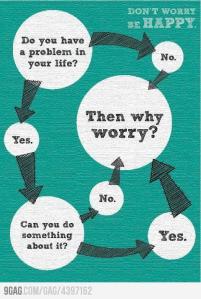 Today is my spiritual birthday! I made my commitment to Jesus Christ eighteen years ago! (Does this make me an “adult” Christian now? Can I vote? I vote for grace.)
Today is my spiritual birthday! I made my commitment to Jesus Christ eighteen years ago! (Does this make me an “adult” Christian now? Can I vote? I vote for grace.)
I rang in the new year with my best friend Erica and the cast of Downton Abbey. As you may recall, one of the keys to my productivity is that I’ve effectively cut TV out of my life. However, Eir decided to sabotage my life by forcing a Downton addiction on me, lol!
Early in the month, we in the Cities were blessed by a visit from Dora, one of our favorite out-of-town friends, so a crew of my favorite people all hung out together. So lovely, although we missed Des!
Speaking of Des, I was able to get lunch with her on one occasion and coffee on another, and I can’t tell you how grateful I am that my former roomie and her husband live only two buildings down from me …
… especially because I had not one but two flat tires this month! Yeah, seriously. The one went out, and then one week later, another followed suit. The first time around, I handled it well. I’m fairly independent. I called AAA, and I took it to Tires Plus, and I shelled out the three bills it took to get two new tires and an alignment. But when it happened again a week later, I have to admit, I cried. I so desperately wanted to not be a grown-up in that moment. My delightful parents came to Minneapolis that weekend and rescued my car, dealt with it all for me. I felt a little like a baby, and it. felt. great. Des’s husband Matt drove me to and from work for a couple days. (Thanks, Matt!)
Then my heater quit working the following week. Did I mention that it’s been dangerously cold in Minnesota? We’re talking 60 below wind chill. So … I am really thinking that my book advance might need to go toward a new car.
My book showed up on Goodreads!
I celebrated my birthday with some of my favorite girls! Eir made dinner for me, Des, and Ashley.
As for the next novel, it’s coming along quite well! (I know I was just complaining about anxiety, but the writing is [mostly] faring well.) I’ve met some friends on Twitter who use the hashtag #wewrotetoday to help encourage one another and keep each other accountable. I’m loving it!
Writing a novel means that you have to do a BOATLOAD of research (and sometimes it’s all for just a small detail that most readers aren’t even going to notice). Lately I’ve had to research woodworking, crown moulding, various sounds, and incomplete spinal cord injuries. Unlike a non-fiction writer, the novelist can (sometimes) get away with not becoming an actual expert in the various areas. We do this through skillful (and maybe manipulative) omission of facts, by insinuations, and by using vagueness to our benefits. I’ll be honest though: sometimes it doesn’t work. I do my very, very best.
One more exciting thing: I finally saw my contract. I’m thrilled. I’ll be signing any day now (once my agent irons out a couple wording issues!).
So that’s my January! I’m really excited for February, because I’m participating in a reading on Tuesday, February 11th, at the University of Northwestern — St. Paul. I’ll be reading excerpts from Truest and (I think) doing a Q & A afterward. If you’re in the Twin Cities, you should come! (More details soon!)













